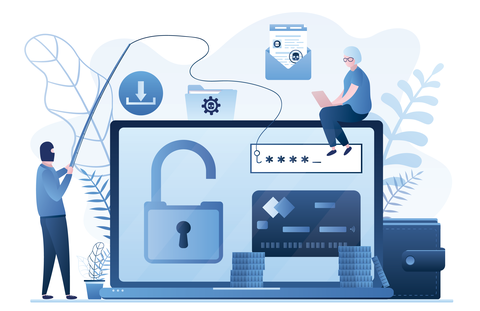
Spot and Prevent Elder Financial Abuse
Each year, older adults in this country fall victim to financial abuse, costing seniors an estimated $27 billion. Financial exploitation can take many forms such as theft of money or property by a family member, caregiver, or scammer. It is vital to take precautions to prevent exploitation against older Americans.

Here are suggestions for protecting yourself and your loved ones:
Closely monitor your credit card and bank account activity. Review your account statements as soon as you receive them and look for unauthorized or suspicious transactions. If you find any, report them to your bank immediately.
Protect your personal financial information. Never give out your bank account numbers, Social Security number, personal identification numbers (PINs), passwords, or other sensitive information unless you initiate the contact through a legitimate webpage or phone number. Also, be aware that scam requests may come from an unsolicited phone call, text, letter, email, or a person who shows up at your door.
Keep your checkbook, account statements, and other sensitive information in a safe place. Shred paper documents containing sensitive information that are no longer needed.
Be careful with powers of attorney. At some point, you may want to have a power of attorney, a legal document that authorizes another person to transact business on your behalf. While powers of attorney can be very helpful, be careful who you name as your representative.
Review your credit report. Check to make sure all of the information on your credit report is accurate and complete. Check to see if companies you don’t recognize have obtained your credit report; and contact the credit-reporting agency if you see anything suspicious.

Take your time when deciding on a major financial decision or investment. Make sure you understand the transaction and ask questions. Consider getting a lawyer or financial advisor to help you understand the documents and discuss what is best for you. Walk away from anyone who says you must decide or otherwise do something right now.
Remain alert. Finally, here are additional tips:
- To reduce the number of telemarketing calls you receive, consider signing up for the national Do Not Call Registry. If you are on this list, be suspicious of calls from any company or organization that you have reason to believe is not eligible to contact you under the registry’s rules.
- Do not comply with requests from strangers to deposit a check into your account and send some or all of the money back to the person. For more information on fake checks, visit FDIC Consumer News: Beware of Fake Checks.
- If you use social media, many security experts advise against posting the names, addresses, birthdates, and daily activities of relatives, because a thief can use that information. Grandparent scams are on the rise. This type of scam involves con artists who look for personal information on the internet that they can use to call or email an older person and pretend to be a relative in distress — such as a grandchild being injured, in jail, or lost in a foreign country — and needing money to be sent fast. For more on these types of scams, visit FDIC Consumer News: Beware, It's a Scam!
Knowing how to spot and prevent elder financial exploitation will help you protect yourself and your finances.
Additional resources
How Money Smart Are You: Protecting Your Identity and Other Assets
Understanding Deposit Insurance
For more consumer resources, visit FDIC.gov, or go to the FDIC Knowledge Center. You can also call the FDIC toll-free at 1-877-ASK-FDIC (1-877-275-3342). Please send your story ideas or comments to ConsumerEducation@fdic.gov. You can subscribe to this and other free FDIC publications to keep informed!
